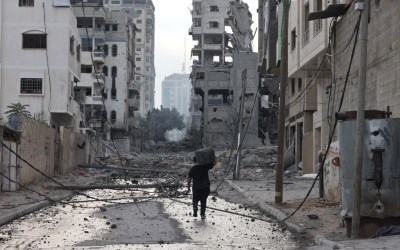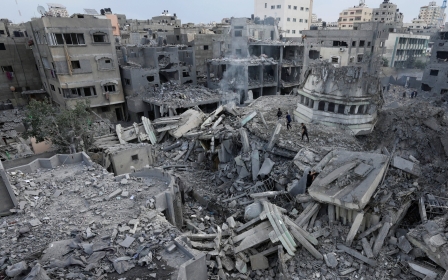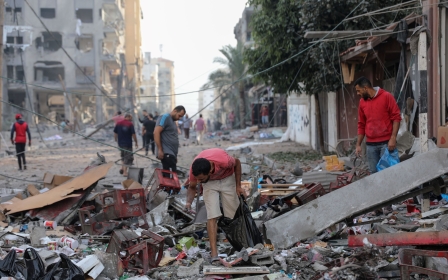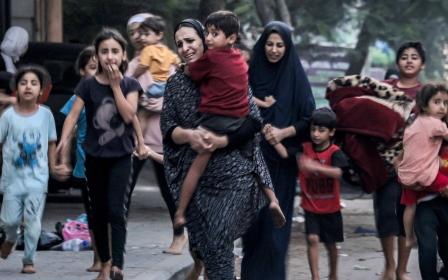Israel-Palestine war: Without fuel or internet, Israel set to disconnect Gaza from the world
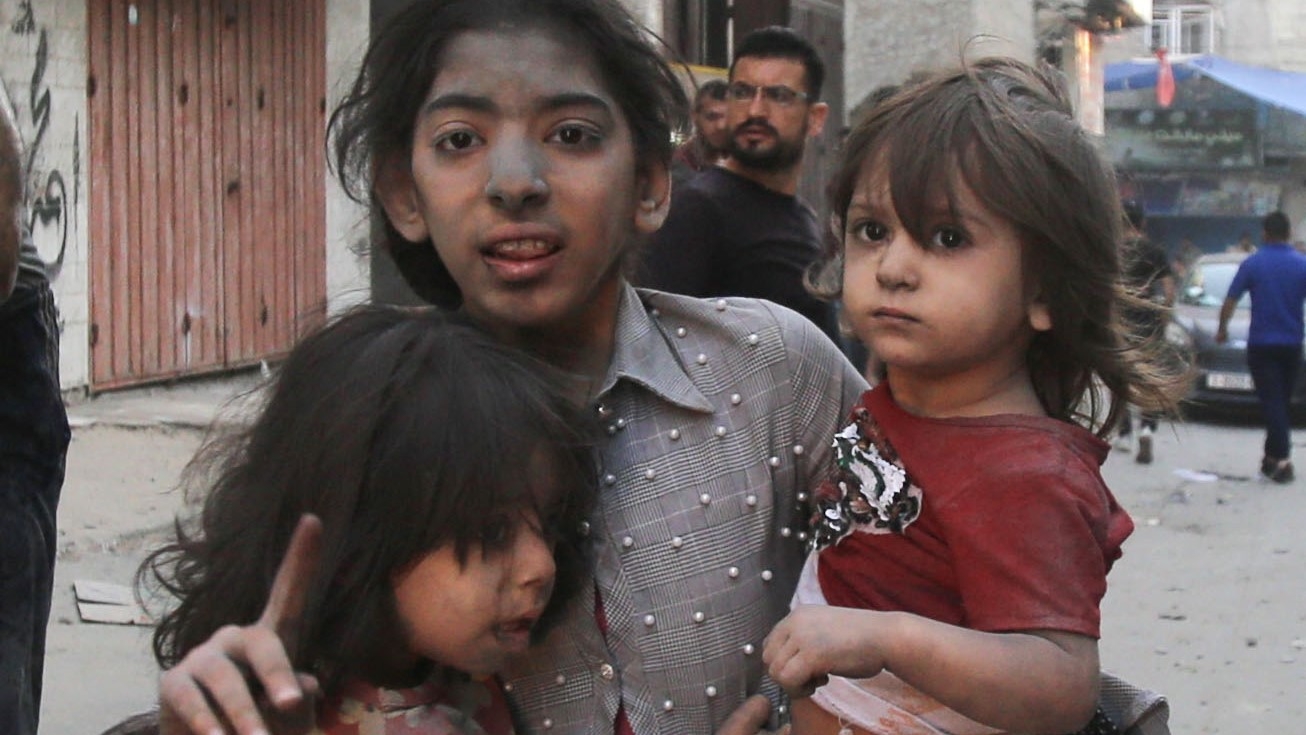
Over two million residents in the Gaza Strip are facing an imminent threat of a complete blackout to the outside world after Israel cut fuel and electricity supplies and bombed the two primary telecommunication companies.
Gaza's sole power plant has a decreased household electricity supply - eight to four hours per day - since Hamas launched a surprise multi-front assault on Israel on Saturday morning.
The Israeli military has been heavily bombarding the Gaza Strip since, causing widespread destruction and wiping out entire neighbourhoods. At least 1,055 Palestinians and 1,200 Israelis have been killed.
However, the energy authority in Gaza has warned that the power plant may soon completely shut down due to diminishing fuel supplies.
In numerous areas across the blockaded enclave, residents have reported the partial loss of internet connection since Saturday, as a result of the damage inflicted to the infrastructure by the ongoing Israeli bombardment.
New MEE newsletter: Jerusalem Dispatch
Sign up to get the latest insights and analysis on Israel-Palestine, alongside Turkey Unpacked and other MEE newsletters
This disruption was further intensified by Israeli forces targeting the headquarters of the two main telecommunication companies in Gaza - Paltel and Jawwal - on Monday.
As a result, Middle East Eye has been encountering challenges maintaining communication with its reporters on the ground due to frequent power supply disruptions and unreliable internet connections.
Israel on Monday announced a full blockade on Gaza, cutting fuel and food supplies. The enclave has since been incapable of importing fuel supplies or receiving humanitarian aid.
Egyptian trucks delivering aid to the Gaza Strip on Tuesday were forced to return under the threat of air strikes.
Israeli Channel 12 said an Israeli official had warned Egypt that any trucks carrying aid and trying to enter the Gaza Strip would be subject to bombing.
Israeli fighter jets conducted multiple air strikes on the Rafah border on Monday and Tuesday which had severed the connection between Egypt and Gaza.
The border serves as Gaza's sole crossing point into Egypt and third countries.
Although the scale of the bombardment has been unprecedented, residents say their fear of falling into a state of blackout might even exceed their fear of bombing.
"The feeling that we were not alone and that we were able to access the internet and share updates on social media about the massacres being committed was a form of solace for us," Salma Mohamed, a resident of Gaza City, told MEE.
"Now knowing that we will be isolated and completely cut off from the world is horrifying. To be bombed in total blackout while being disconnected from the world and from each other is something that I could not imagine in my worst nightmares."
Complete isolation
Residents also fear not being able to receive notices from the Israeli army to evacuate their buildings before it bombs the area.
“My greatest fear is that at any moment my family and I could ourselves be trapped under rubble unable to call for help. We wouldn't even be able to stay informed on the location of the areas being bombed or receive evacuation notifications because our phones will be out of battery and there is no phone service," said Mustafa Banna, a resident of Gaza City.
"We would not even know the fate of our families and relatives who live in different areas of Gaza," added the 28-year-old father.
'The Israeli occupation is seemingly trying to carry out massacres while ensuring that crimes remain unreported and unknown'
- Gaza resident, mother of two
"When the electricity is back, the internet is down, and when we have an internet connection, the electricity goes out. We receive only four hours of electricity every 24 hours. The electricity provided by power generators has also been reduced to four hours a day."
The Gaza health ministry announced on Wednesday that hospitals will start operating under a reduced power consumption plan to reserve fuel for critical life-saving operations.
"Given the intense Israeli aggression, power outages and the lack of fuel for hospitals, we have decided to implement measures to regulate health care services, allocate and direct the limited power generators' capacity to maintain essential and critical life-saving services for the wounded and other patients," the ministry told MEE.
A mother of two boys, who did not wish to give her name, said she has not been able to work remotely since the beginning of the attack due to electricity and internet disruptions.
"I cannot work because I have no electricity at home. And when the power is restored, I'm always in a hurry to recharge our devices, do laundry, bathe my children, and catch up on the daily household chores that are also affected by the blackout," the woman, who works at a local NGO, said.
The continuous electricity outages also have a direct impact on the water supply, which relies on power to be pumped into residential buildings.
"When the electricity goes off, it is like life has stopped, nothing can be done. Even water becomes unavailable and now the internet service disruption is exacerbating everything," the mother added.
"The Israeli occupation is seemingly trying to carry out massacres while ensuring that crimes remain unreported and unknown," she said.
This article is available in French on Middle East Eye French edition.
Middle East Eye delivers independent and unrivalled coverage and analysis of the Middle East, North Africa and beyond. To learn more about republishing this content and the associated fees, please fill out this form. More about MEE can be found here.


